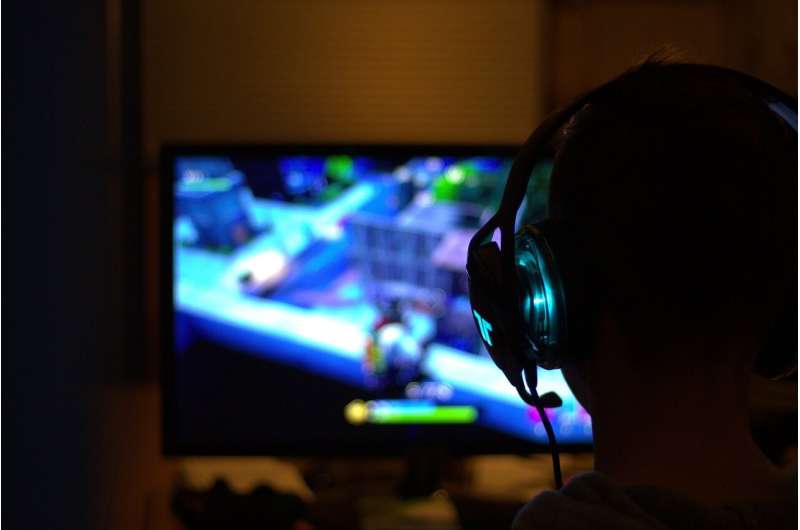
A video game with biofeedback—aimed at keeping heart rate low during fast-paced play—can help youth learn to regulate their anger, finds a small randomized trial at Boston Children’s Hospital. If the game is further validated in larger studies, the researchers hope it would reduce the need for psychiatric medications and help children and teens who cannot immediately access psychotherapy. Findings of the pilot study were published 9/1 in Frontiers of Psychiatry.
The game, called Regulate and Gain Emotional Control (RAGE-Control), was developed at Boston Children’s about a decade ago. It trains kids to stay calm during stressful or frustrating situations. In the game, players try to shoot virtual asteroids while avoiding friendly craft, while a pulse oximeter on their wrist monitors their heart rate. If they remain calm and keep their heart rate down, they do better in the game. If their heart rate goes too high, they lose their ability to shoot.
“Emotions like anger and anxiety that increase arousal also increase heart rate. Techniques that bring the heart rate down, like taking a deep breath and letting it out slowly, are calming,” says Joseph Gonzalez-Heydrich, MD, a senior attending psychiatrist at Boston Children’s Hospital and senior author on the paper. “So we hypothesized that if children learned techniques to lower their heart rate and thus their arousal while playing a challenging game, then they would be able to use these techniques during conflicts at home and school.”
Study design and findings
To test RAGE-Control, the researchers enrolled 40 children aged 10 to 17 who were attending an outpatient psychiatry clinic and had significant problems controlling their anger. All received a standard cognitive-behavioral intervention called Anger Control Training. At the end of each psychotherapy session, half the children, chosen at random, played RAGE-Control with heart-rate feedback. The other half played the game and wore the heart rate monitor, but their heart rate did not impact their game.
The study tracked anger and oppositional behavior in several ways. The children completed a 35-item anger questionnaire. Parents completed a 5-point aggression scale and an 8-item scale to evaluate disruptive behaviors. Finally, clinicians rated the participants’ overall anger severity on a 7-point scale. Players, parents, and clinicians did not know which form of the game the child was playing.
In children playing RAGE-Control with heart-rate feedback, heart rates during play fell over time. Additionally, after 10 sessions, their parents reported greater improvements in aggression and oppositional behavior than did parents of children who played the game without biofeedback. Clinicians also reported significantly reduced anger severity in the children who received biofeedback. The greater the decrease in heart rate, the more the children’s behaviors improved.
“Changes in children’s own ratings of their anger were not significantly different between the two groups,” notes Gonzalez-Heydrich. “So the biofeedback-based game did not make the children any less angry, but it did help them have more control of the expression of their anger.”
Source: Read Full Article
